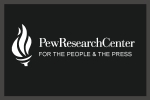
A new poll from the Pew Research Center and Smithsonian magazine offers a degree of insight into American scientific literacy on natural selection, the age of the earth, and climate change, although there were no questions directly addressing evolution in the sense of common ancestry or climate change in the sense of anthropogenic global warming.
Presented with "The continents on which we live have been moving their location for millons of years and will continue to move into the future," 77% of respondents said that it was true, 10% said that it was false, and 13% said that they didn't know or volunteered a different answer. The results were comparable to earlier results from Pew and the General Social Survey.
Asked "Which of these is a major concern about the overuse of antibiotics," 77% of respondents selected "It can lead to antibiotic resistant bacteria," 6% selected "Antibiotics are very expensive," 10% selected "People will become addicted to antibiotics," and 7% said that they didn't know or volunteered a different answer.
And asked "What gas do most scientists believe causes temperatures in the atmosphere to rise," 58% of respondents selected carbon dioxide, 10% selected hydrogen, 8% selected helium, 7% selected radon, and 16% said that they didn't know or refused to answer. The percentage of correct responses was down from 65% and 66% in two 2009 polls.
"Education is the strongest demographic predictor of knowledge about science and technology," the report observed: while 85%, 95%, and 76% of college graduates correctly answered the questions about continental drift, antibiotic overuse, and atmospheric warming respectively, only 68%, 58%, and 49% of those with a high school education or less did so.
There were only minor differences with regard to political opinion (63% of independents, 58% of Republicans, and 56% of Democrats correctly identified carbon dioxide as responsible for atmospheric warming), age (although respondents 65 or older tended to score lower), and sex (men slightly outperformed women, except on health-related questions).
According (PDF) to the poll report, the poll was conducted "in telephone interviews conducted March 7-10, 2013[,] among a national sample of 1,006 adults 18 years of age or older living in the continental United States" and weighted by gender, age, education, race, Hispanic origin, region, and telephone status. The margin of error for the total sample was +/- 3.7%.
